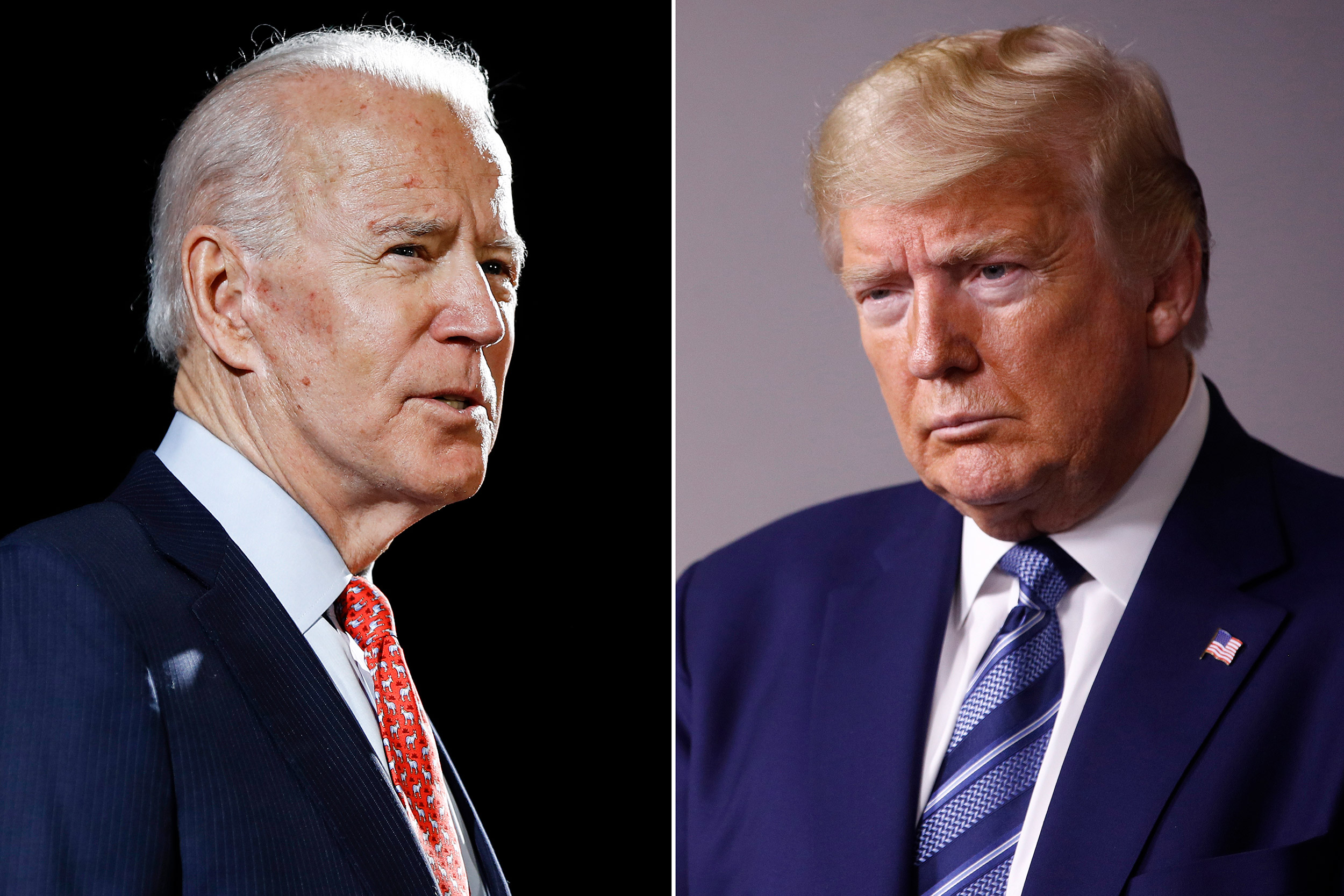Is age just a number? Ask Biden and Trump

President Biden is 80 years old and Donald Trump is 77.
AP file photos
Medical, political experts say concerns about physical, cognitive health of presidential candidates germane but evaluation complex, can’t be done from TV appearances
Both President Biden and former president Donald J. Trump have announced their candidacies for the White House in the 2024 election. But recent polls show many Americans think Biden, 80, and Trump, who turned 77 in June, should not run again because they’re too old to serve another term.
Many feel Biden lacks the mental sharpness or physical health to serve effectively as president again and give Trump the edge, according to another recent survey.
Medical and political experts say such concerns about age have some validity generally, but individual cases can vary widely. And, they note, too many draw conclusions on fitness based on insignificant or unreliable indicators, an issue that will grow in significance as leaders are living longer and remaining in office — the current median age in the U.S. Senate is 65 and nearly 58 in the House.
Alex Keyssar, Matthew W. Stirling Jr. Professor of History and Social Policy at Harvard Kennedy School, said Ronald Reagan’s age was widely seen as a flaw that Democrats tried to exploit when he ran for president in 1980 and 1984, but voters’ fixation on the age of both Democratic and Republican party front runners is new. With Biden and Trump as two of the three oldest to ever hold the office, age is a legitimate factor to weigh in the eyes of many voters.
“I think age is also a surrogate for concern about illness and somebody dying in office,” said Keyssar. “It’s both: ‘Is this person capable of doing the job?’ and then, ‘Are they going to live to finish the job?’”
Noting that Sen. Bernie Sanders of Vermont, who is older than Biden, faced little age criticism when he ran for president in 2016 at 75 and in 2020, at 79, Keyssar believes Democrats who cite age as a major election concern are probably really expressing “a desire for energetic leadership, a force for new ideas, new spirit, and new energy.”
From the Right, painting Biden as physically and intellectually unfit for office has been a relentless political branding strategy since the 2020 primaries. Republican candidate Nikki Haley, 51, a former U.S. ambassador to the U.N. under Trump, recently predicted Biden would not live long enough to complete a second term and has proposed mental competency tests for politicians over 75.
Though the polling trends suggest this line of attack on Biden has had some success, its effectiveness will diminish if Trump ends up as the GOP nominee, said Keyssar, “unless somebody gets sick.”
So far, age and health have been less of a political Achilles’ heel for Trump than they have for Biden. Keyssar believes voters have other superseding concerns about Trump that render his age far less important. “People worry about what he represents and what he would do — and that would be true even if he was 10 years younger,” he said.
While corporate America still sometimes requires senior executives to retire once they hit the mid-60s or early 70s, and top institutional leaders are rarely hired from this cohort, the Constitution has no age ceiling for presidents. That leaves prospective voters to apply their own standards in order to judge whether a candidate is still fit for the office.
Bonnie Wong, director of the neuropsychology program at Mass. General Hospital’s frontotemporal disorders unit, said there is a natural change that occurs as we age. “We get a little bit slower. That’s just a normal part of life.”
Assessing someone’s mental or physical fitness from brief observations of their speech, memory, or motor function, as voters seem to be doing with Biden and Trump, is highly unreliable. When it comes to cognitive acuity, things are much more complex, she said.
“People say, ‘Oh, people make gaffes when they’re speaking publicly.’ We all do that,” said Wong, who studies brain health and “super agers” and is currently working on research involving centenarians.
Same with having trouble remembering names. The scientific literature shows name retrieval starts to get harder for most in the 30s and 40s, “so that’s just normal, and it may take you a little longer to retrieve the name,” she said.
A more important metric is executive function, the kind of higher-order reasoning, problem-solving, and abstract thinking that allow us to plan, organize, and work through problems in real time. Also important is how well individuals function in their real-world environment, whether it’s a surgeon in the operating room or a president in the Oval Office, said Wong.
In a recent TV interview, Biden touted his “wisdom” and “experience” as reasons voters should re-elect someone who will be 82 on Inauguration Day.
Wong said there is some validity to the idea that with age comes wisdom.
“You learn how to reason in a very fluid way, much differently than when you were younger,” she said. “There’s reasoning [and] there’s a lot of information that we’ve learned over the course of our lifetime that will stick with us, even if we’re really, really impaired later on in life.”
Physical health is an important influence on cognitive performance. People “don’t realize how much that influences cognitive functioning and cognitive abilities,” said Wong.
“If people who are physically healthy, active, they’re constantly moving, stimulated, doing things that provide novelty to their day-to-day experience — the novelty is really what helps make new connections and connects existing to new neurons — that type of physical activity and relatedness and ability to interact in the real world in real time is usually what I consider to be one of the strongest metrics and predictors.”




